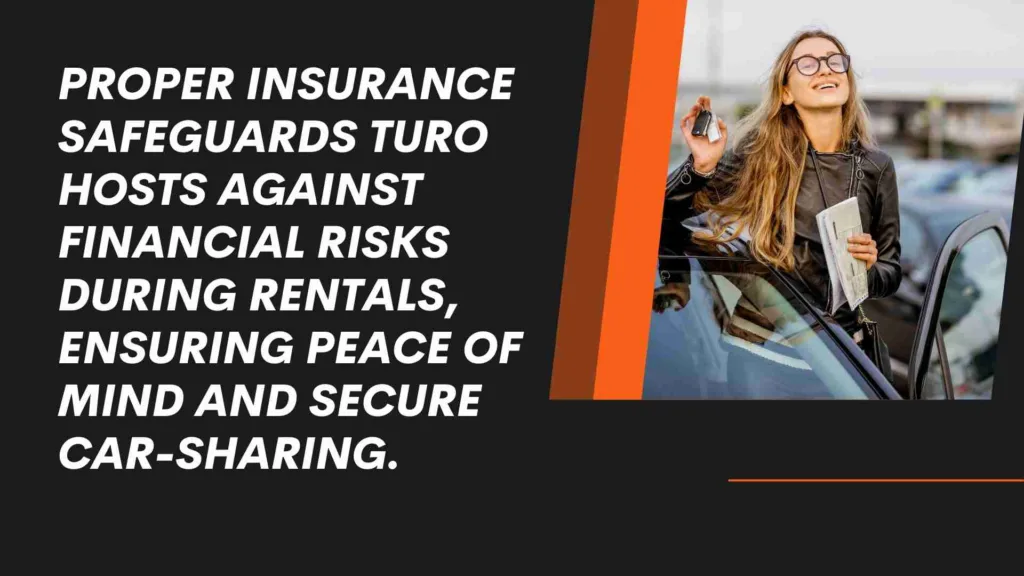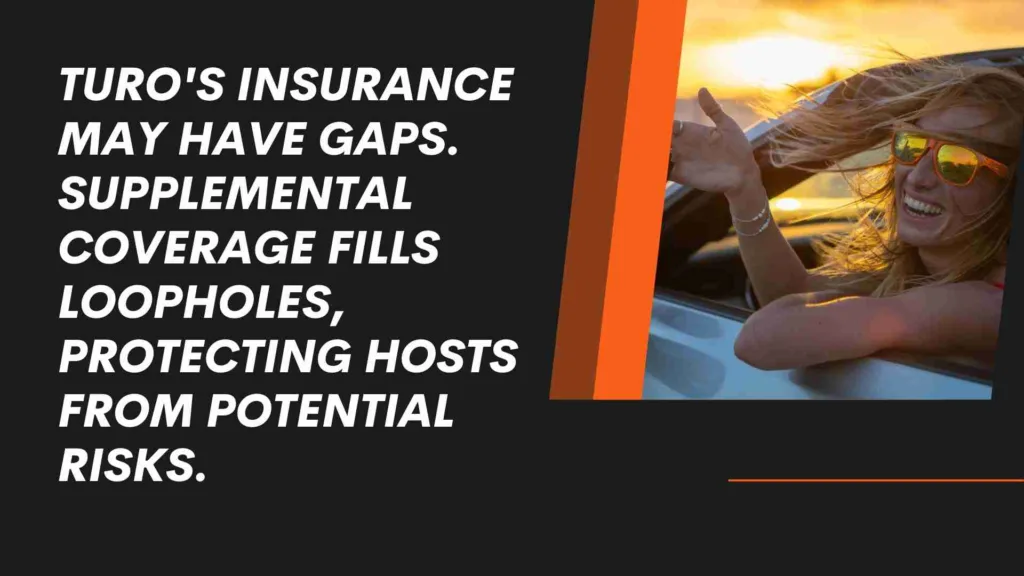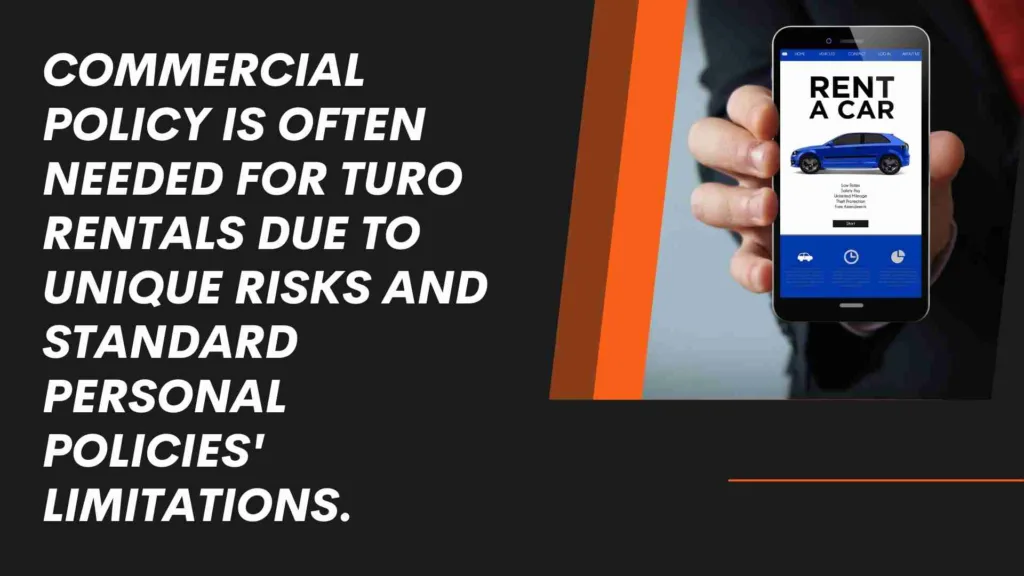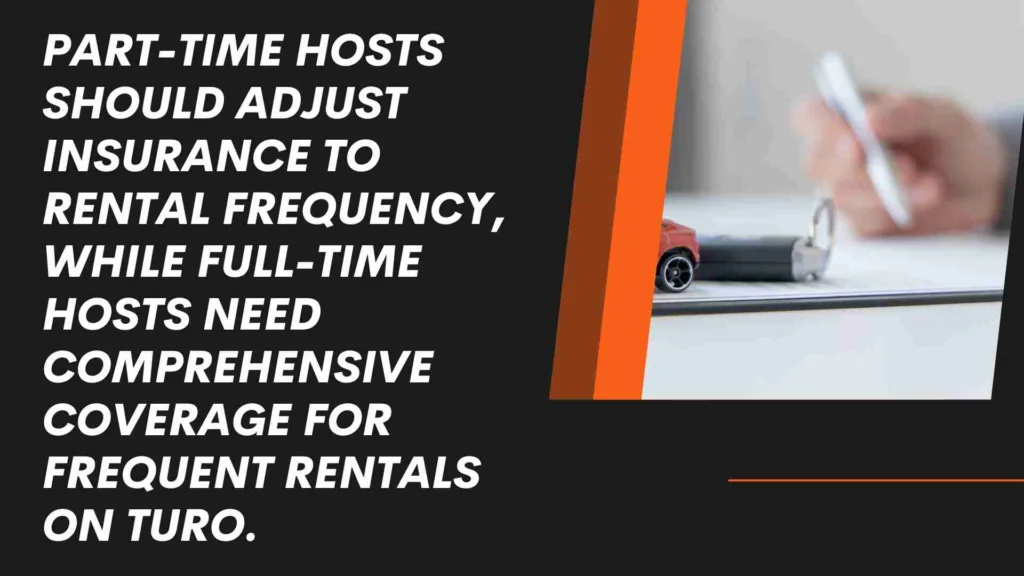Introduction
Turo car sharing is becoming increasingly popular, allowing car owners to earn extra income by renting out their personal vehicles. However, many hosts need clarification about how their car insurance works when listing a car on Turo. Do you need special commercial insurance to protect yourself and your vehicle? What coverage options does Turo provide?
This article will cover everything Commercial Auto Insurance Turo hosts need to know about insurance requirements, protection plans, and how to get proper coverage for cars listed on the Turo platform. Read on for the must-know facts about commercial auto insurance Turo in 2024.
Key Takeaways
- Check your state’s regulations to see if commercial insurance is required for Turo hosts.
- Make sure any insurer you choose explicitly covers ridesharing activities like Turo.
- Compare premium costs across insurers, coverage limits, and deductibles.
- A commercial auto policy fills gaps in coverage and provides peace of mind.
- Part-time vs. full-time use dictates how much and what type of coverage you need.
- Disclose intended Turo use accurately when shopping for policies.
- Review exclusions and disclosures in any policy to ensure you get the necessary coverage.
Table of Contents
Why Proper Commercial Auto Insurance Turo Matters?

As a Turo host renting out your personal car, having adequate insurance coverage is crucial to protect you financially in case of an accident or damage. Without proper insurance, you could be liable for passenger injuries or damage to your vehicle during a Turo rental.
Some key reasons you need proper commercial insurance as a Turo host:
- Your policy may not cover rentals: Most personal auto insurance policies limit or exclude coverage for vehicles used for commercial purposes like ridesharing or rental services.
- Liability protection: Renters are covered by Turo’s insurance, but as the car owner, you need liability coverage if renters sue you after an accident.
- Damage reimbursement: Turo’s protection plans limit physical damage coverage and deductibles. Commercial rental insurance can help reimburse you for damages.
- Lost rental income: If your car is out of commission after an accident, commercial insurance can cover the loss of Turo rental income.
- Meets state regulations: Some states require Turo hosts to have separate rental or commercial policies to comply with regulations.
The bottom line is that relying solely on your insurance when renting out your car on Turo is risky. The right commercial policy provides peace of mind and financial protection.
Turo’s Insurance Options and Gaps

Turo provides some liability and physical damage coverage during each rental period, but there are limitations:
- Liability insurance: $750,000 for injury/property damage is covered by Turo. But there may need to be more coverage in a major accident.
- Contingent collision/comprehensive: Only if a renter declines Turo’s protection plan. There are deductibles of up to $3,000.
- Protection plans: Turo offers various basic, premium, and commercial deductibles. But damage reimbursements are limited.
- Gaps: No coverage for loss of use or income, callbacks/towing, or damage to personal property in the car. No coverage when the car isn’t actively booked.
Turo’s insurance options leave gaps that your commercial policy can fill. For example, Turo Protection has a $750 deductible for vandalism claims, whereas a commercial policy may have no deductible.
Do You Need a Commercial Policy to Rent on Turo?

Whether or not you need a separate commercial insurance policy depends on a few factors:
- State laws: Some states explicitly require Turo hosts to have separate commercial coverage that meets certain liability minimums. Check your state laws.
- Personal policy limits: If your policy excludes coverage when renting out your car, you’ll need supplemental commercial insurance.
- Comfort level: Given the limitations of Turo’s protection plans, many hosts prefer having their comprehensive commercial policy for peace of mind.
- Frequency of rentals: Turo’s protection may be sufficient if you only rent infrequently. Frequent hosts likely need higher liability and physical damage limits.
- Car value: For high-end cars, you may want commercial coverage that reimburses you for the car’s actual cash value, greater than Turo’s coverage limits.
Ultimately it’s about evaluating your coverage needs and risk appetite. A separate commercial policy is recommended for many hosts but is only legally required in some states.
What Does Commercial Insurance Normally Cover?

A typical commercial auto insurance policy for Turo hosts includes:
- Liability coverage: $1 million minimum for bodily injury and property damage per incident.
- Collision/comprehensive: No deductibles and direct reimbursement for damage repairs.
- Loss of use: Covers loss of rental income if the car is out of service.
- Transportation expenses: For rental reimbursement if the car is damaged.
- Roadside assistance: Covers towing, labor costs, etc.
- Diminished value: The insurer covers the difference if an accident reduces the car’s value.
- Personal property coverage: For damage to items left in the car.
- Rider for ridesharing: Explicitly adds coverage for car-sharing services.
Commercial policies can also include uninsured motorist coverage, roadside assistance, and rental reimbursement. Policy limits can be customized based on your needs.
Where To Buy a Commercial Policy for Turo
The best place to buy a commercial policy as a Turo host is through a specialty insurer that offers rideshare coverage. Options include:
- Allstate: Offers rideshare insurance endorsed by Turo.
- State Farm: Has a rideshare “gap” policy add-on.
- Farmers: Features a rideshare coverage endorsement.
- Geico: Has Hybrid or Commercial auto policies covering Turo.
- Liberty Mutual: Offers a ridesharing endorsement and coverage through Turo.
- Progressive: Has rideshare insurance available in select states.
- The Zebra: Insurance comparison marketplace with rideshare options.
- Insurify: Helps you compare policies from top insurers.
The key is finding an insurer that explicitly includes Turo or ridesharing as covered activities under their commercial policy. This guarantees you get the proper protection.
How Much Does Turo Insurance Typically Cost?
The cost for a commercial auto insurance policy as a Turo host can vary quite a bit based on these factors:
- Location: Insurance rates are higher in cities and states with higher accident rates.
- Car makes/model/year: Premiums are higher for newer/luxury vehicles.
- Your driving record: Good drivers pay less than those with prior violations and claims.
- Policy limits: Higher liability and physical damage limits mean higher premiums.
- Insurer: Each provider prices policies differently.
- Deductibles: Higher deductibles reduce your monthly premiums.
On average, hosts pay $150 to $300 monthly for commercial coverage from a rideshare-friendly insurer. This is in addition to your regular personal auto policy. Some insurers offer part-time rideshare policies at lower prices if you drive at most 15 hours weekly.
Managing Insurance as a Part-Time vs Full-Time Host

Insurance needs vary depending on your Turo hosting frequency:
Part-time Turo hosts:
- You may only need a rideshare endorsement or gap policy added to a personal auto policy. This covers the gaps during Turo rentals.
- You can opt for higher deductibles on physical damage coverage to reduce premium costs if renting infrequently.
- Still need adequate liability and uninsured motorist coverage.
Full-time/frequent Turo hosts:
- Need a standalone commercial policy to get higher liability limits and physical damage coverage.
- Should have no deductibles or very low deductibles of $250-$500.
- Will qualify for multi-car discounts if listing several vehicles.
- Can get discounts for high annual mileage driven.
Either way, read policies closely and discuss intended Turo use to get properly covered as a host. Disclose mileage and frequency to get an accurate quote.
Frequently Asked Questions About Commercial Insurance for Turo
Do I have to tell my insurer I’m renting my car on Turo?
Yes, you must legally disclose to your insurer if you plan to rent your vehicle on Turo. Not informing them can risk the denial of claims.
What evidence of insurance does Turo require?
Turo requires hosts to upload valid personal insurance ID cards. You do not have to prove separate commercial coverage to list a car.
Can my insurer drop me if I start Turo hosting without telling them?
Potentially yes, an insurer could choose to cancel your policy if you start Turo rentals without informing them or getting the proper rideshare coverage.
Is Turo’s $1 million liability insurance enough?
Turo provides liability coverage for renters, but many experts recommend hosts carry at least $1 million in commercial liability coverage to protect their assets if sued.
What if a renter damages the car and refuses to pay the deductible?
With the right commercial policy, your insurer would cover any deductibles, so you are not out of pocket for repairs. Turo may seek reimbursement from the renter.
Does my personal policy cover car rentals outside of Turo?
Likely no—most standard policies exclude routine commercial activity like renting your car out to family/friends/co-workers too. A rideshare policy covers all car sharing.
Can I list multiple cars on Turo with just one commercial policy?
Yes, you can get a commercial policy that covers all the cars registered to you, even if they are each listed separately on the Turo platform.
What is commercial auto insurance?
Commercial auto insurance is a type of insurance that provides coverage for vehicles used for business purposes. It is designed to protect businesses and their drivers from financial loss in case of an accident or damage to the vehicle.
What is Turo?
Turo is a car-sharing marketplace allowing individuals to rent their personal vehicles to others. It is an alternative to traditional car rental services, where people can rent a car directly from the owner.
Do I need insurance for Turo?
Yes, you need insurance to rent or list your car on Turo. Turo provides its insurance coverage, but you can use your car insurance if it meets certain requirements.
What types of insurance coverage does Turo provide?
Turo provides three levels of insurance coverage: basic, standard, and premium. The basic coverage includes liability insurance up to the state minimum, while the standard and premium coverage offers higher limits and additional protection.
Can I rent a car through Turo without any insurance?
No, you cannot rent a car through Turo without insurance. Turo requires all renters to have insurance coverage, either through Turo’s insurance or their car insurance.
Can Turo hosts provide their commercial rental insurance?
Yes, Turo hosts can provide their commercial rental insurance. This allows hosts to have more control over the insurance coverage and may provide additional benefits for the host.
What is liability coverage in commercial auto insurance?
Liability coverage in commercial auto insurance protects the insured party from claims for injuries or damages caused to other people or property. It covers the legal obligations of the insured in case of an accident.
What is a deductible in car insurance?
A deductible in car insurance is the amount of money the insured party must pay before the insurance company starts to cover the costs. It is a way to share the financial risk between the insurance company and the insured.
What is comprehensive insurance?
Comprehensive insurance is a type of insurance coverage that protects against damage to a vehicle caused by incidents other than a collision. It covers theft, vandalism, natural disasters, and falling objects.
What is replacement vehicle reimbursement?
Replacement vehicle reimbursement is a type of coverage that provides a rental car or reimbursement for the cost of a rental car while your vehicle is being repaired or replaced due to an accident or other covered incident.
Conclusion: How To Get Properly Insured on Turo
Here are some final best practice tips for getting the right insurance coverage on Turo:
- Shop for commercial policies from known rideshare-friendly insurers only. Avoid insurers lacking experience with Turo.
- Be truthful about your intended usage—disclose mileage, rental frequency, car value, etc., to get an accurate quote.
- Read the fine print! Verify the policy explicitly allows Turo and car-sharing activities.
- Discuss risks and coverage options with an agent to design optimal protection.
- Consider liability and physical damage needs based on car value and rental volume.
- Review exclusions and limitations carefully to avoid surprises if filing a claim.
- Get quotes from multiple insurers to compare pricing and find the best value.
- Adjust deductibles and limits to strike the right balance of premium cost vs. coverage extent.
- Reread your policy when increasing hosting activity or changing vehicles listed.
- Document all communications with your insurer confirming Turo usage approval.
Arming yourself with the facts on commercial auto insurance requirements for Turo puts you in the driver’s seat. Knowing you have ironclad protection, you can confidently list your car on the Turo marketplace. That provides peace of mind while earning thousands in rental income annually.
Consult an insurance professional to analyze your risks and pick the perfect commercial policy. Follow the tips outlined here to get the coverage you need at an affordable price. Then you can start listing your car on Turo and enjoy the benefits of car sharing.
- Does M&S Do Car Insurance? A Full Guide In 2024 - April 15, 2024
- Pet Insurance for Older Dogs: 2024 Full Guide & Top Providers - March 17, 2024
- Small Business Equipment Breakdown Insurance: Full Coverage - November 6, 2023

